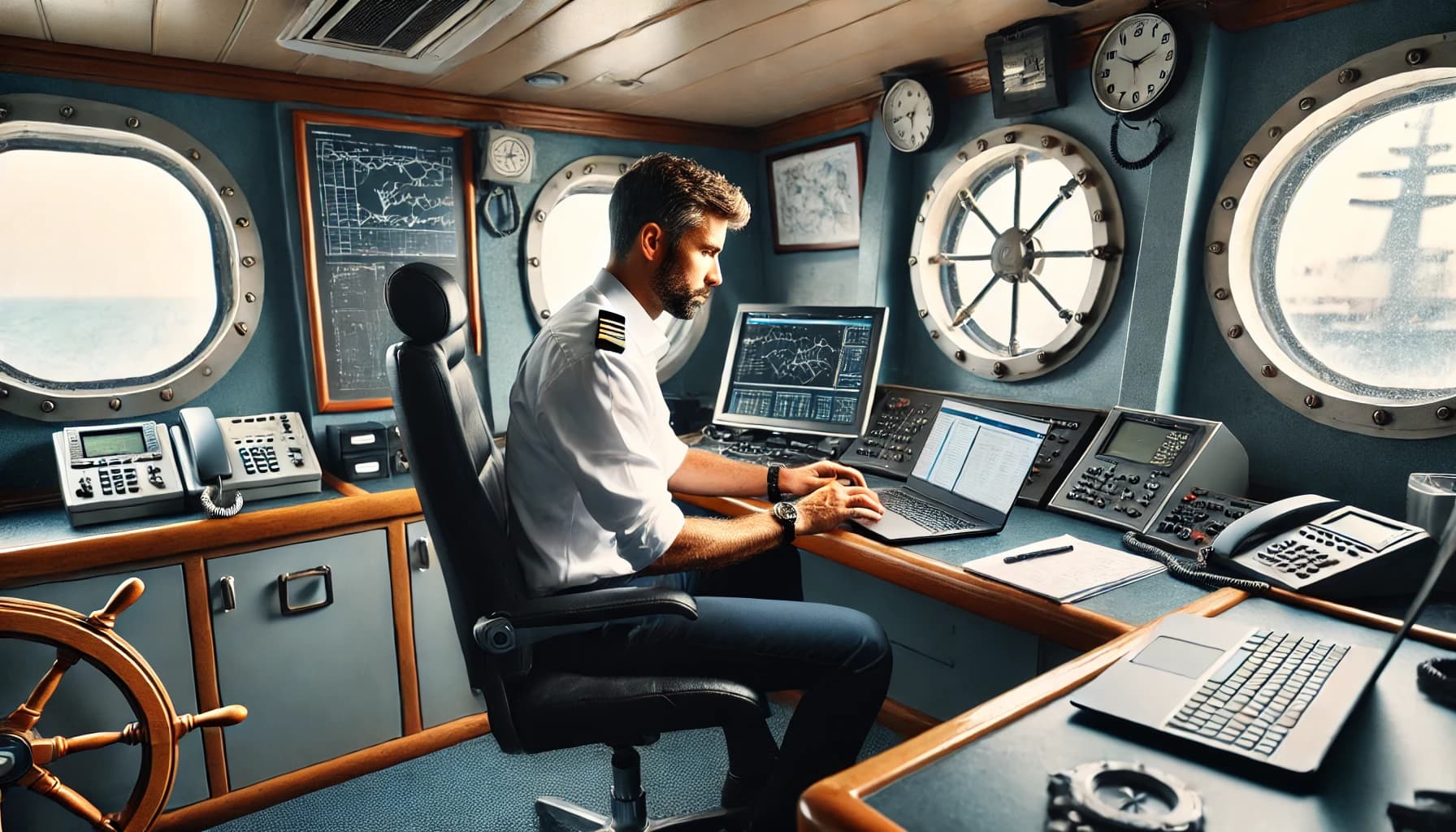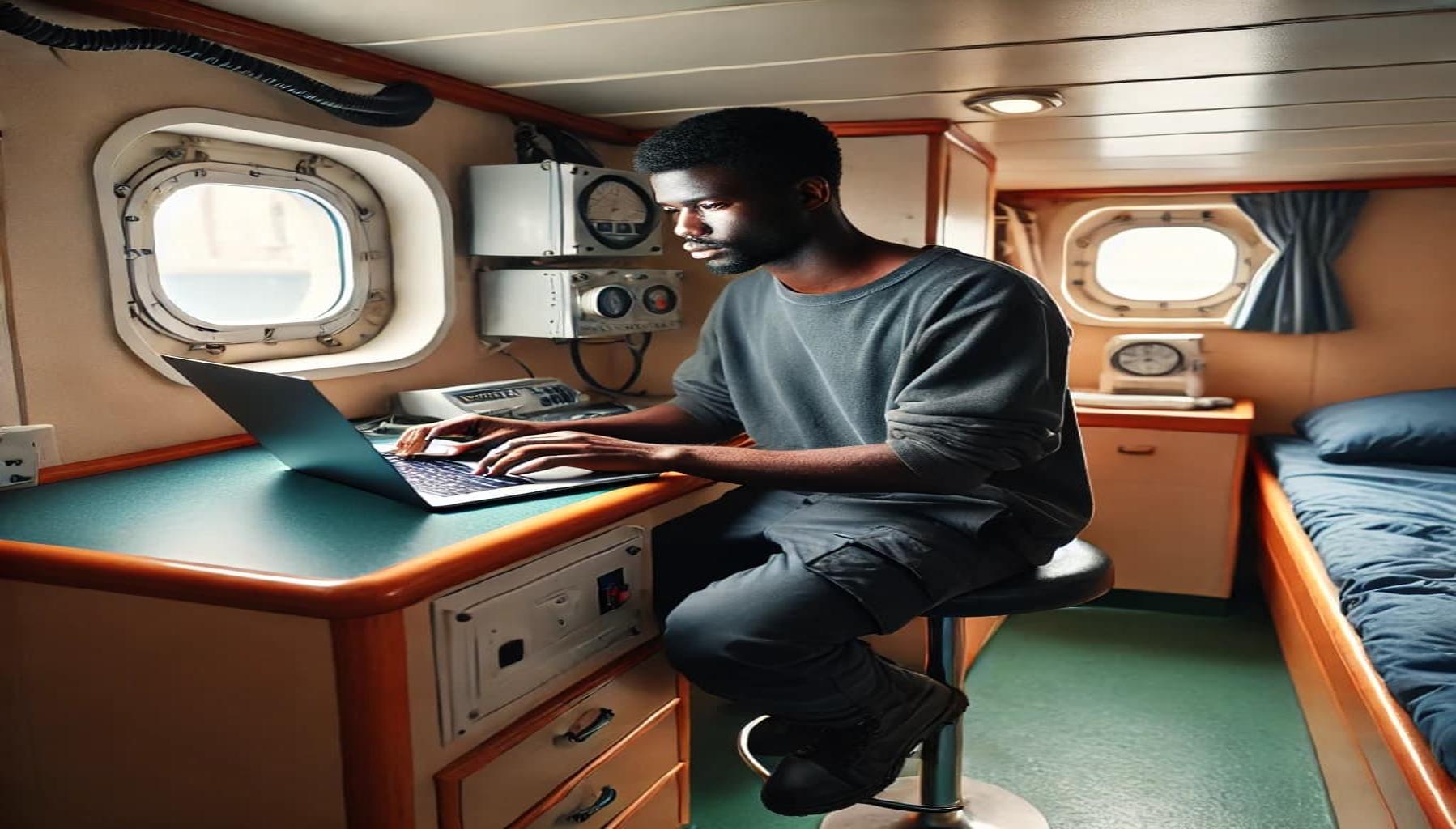Maritime Careers: Deciding Between the Deck & Engine Departments
Aug 22, 2024 · 10 mins read ·
Jobs at Sea
If there’s one thing you’re certain of and that is that you want to embark on a maritime career and work in the merchant navy, that’s great! But where you might not be quite so sure is which department you want to work in.
For those new to the idea of working in a job at sea, choosing between the various departments on a ship might be a little bit confusing. And while every person onboard plays a crucial role in the ship's smooth operation, just as in ‘regular’ jobs on land, responsibilities are divided between departments.
There's no definitive answer to which department is 'better'; instead, it’s important to determine which one aligns most with your career goals, both within and outside the merchant navy.
What are the different departments on a ship?
On commercial vessels there are three main departments: the engine department, the deck department, and the stewards department. Within these departments are different seafarer ranks and positions and for this blog post we’re going to be taking a look at the engine department versus the deck department.
The reason for this is, the ranks in the engineering department and the deck department are seen more as ‘traditional’ seafarer jobs. Jobs in the stewards department are maritime jobs that can often also be found on land - such as Chief Cook, Cook, and Messman (a type of waiter and kitchen assistant.)
On cruise and passenger ships and leisure yachts you will also find Stewards and Stewardesses, whose job it is to look after the guests.

Read more: What Does the Stewards Department Do On a Commercial Vessel?
All departments on a ship have a strict hierarchy when it comes to seafarer ranks. The deck department’s ranks and maritime career progression look like this:
The ranks in a deck department on a ship from least to most senior:
- Deck Cadet
- Third Officer
- Second Officer
- Chief Officer
- Master (Captain)
For the engine department, the progression is:
- Engineer Cadet
- Fourth Engineer
- Third Engineer
- Second Engineer
- Chief Engineer
Note that different companies may have additional or slightly different ranks, such as an interim rank for Junior Officers or Junior Engineers.
And depending whether you take the officer or engineer route through your maritime career, you will need specific knowledge to get you there.
The difference between Nautical Science and Marine Engineering
Gone are the days when anyone looking for adventure could simply head down to their local docks and find a job on a ship, effectively running away to sea. These days, seafarer jobs demand a lot of training, education, and even some hands-on work experience.
And the training you will undertake will differ depending on which department you want to eventually work in. Understanding the differences between Nautical Science and Marine Engineering is also essential. Students who pursue Nautical Science typically become deck officers, while those who study Marine Engineering become engineers onboard.

What is Nautical Science?
Nautical Science is a field of study focused on the art and science of ship navigation and operation. It encompasses a wide range of subjects, including navigation techniques, meteorology, ship stability, cargo handling, maritime laws, and safety regulations.
Students of Nautical Science are trained to become deck officers who are responsible for navigating vessels safely across the seas, ensuring compliance with international maritime standards, and managing all aspects of the ship's operations.
The curriculum combines theoretical knowledge with practical skills, preparing individuals to handle the complex and dynamic challenges of maritime navigation and vessel management.
What is Marine Engineering?
Marine Engineering is a specialized branch of engineering focused on the design, development, operation, and maintenance of the mechanical systems and equipment on ships and other marine vessels.
This field involves studying various engineering disciplines, including mechanical, electrical, and structural engineering, to ensure the efficient and safe functioning of the ship's machinery. Marine engineers are responsible for maintaining engines, boilers, pumps, and other critical components, as well as overseeing systems for propulsion, power generation, and environmental control.
The curriculum blends theoretical knowledge with hands-on training, equipping students with the skills needed to address the technical challenges of marine environments and ensure the smooth operation of maritime vessels.

Things to consider before you decide whether the deck or engine room is right for you
Now you know the difference between Nautical Science and Marine Engineering, you’ll have a better idea of what to look for when you’re deciding between courses at a marine institute or academy and choosing between the engine and deck departments.
Teamwork is vital for a ship's smooth operation and each department requires specific skills. Knowing the subjects you will study in each area can help clarify any doubts about which department to choose.
Below are a few common concerns that some people who want to work in a job at sea but who are undecided between the engine and deck departments might have.
The job structure
The job profiles and duties of officers in the two departments differ, and choosing between them depends on personal preference. The Master ultimately holds the highest authority on the ship, overseeing all operations. Deck officers focus on navigation, while engineering officers handle technical maintenance. Both are essential for the ship's operation and are accountable to the Master.
The salary
Salaries in both departments are generally similar. Previously, there were some differences, but now, seafarers at equivalent ranks in both departments earn almost the same. For example, the Chief Engineer and the Chief Officer may have nearly identical salaries as may a Third Engineer and a Third Officer, and so forth.
Future maritime career prospects
Ships need both engine and deck officers. Engineers specialize in engine maintenance, while deck officers manage navigation and cargo operations. Both roles are crucial and will continue to be in demand, ensuring bright futures for professionals in both fields.

Finding a seafarer job
The job market can be challenging, especially for new entrants. The shipping industry is cyclical, with periods of boom and bust affecting job availability. However, higher-ranking officers in both departments are always in demand due to their expertise. What does that mean for you? It means the sooner you set foot on the first rung of the maritime career ladder, the sooner you’ll be rising through the ranks.
Opportunities for shore-based maritime careers
There are numerous onshore opportunities for experienced marine engineers and deck officers who decide that life on land is now the way forward after working on a ship. For example, they might find work in shipping company management, operations, ship brokering, ports and logistics and more.
Read more: Your Ultimate Guide to Maritime Jobs in Seaports
Marine engineers are also sought after for teaching positions, design, seismic, and maintenance engineering jobs, and luxury hotel machinery management. Nautical officers and engineers are needed in chartering and ship brokerage firms. Masters, in particular, are in high demand for teaching roles.
A word to the wise, however. Working for a year or two in a seafarer job and then deciding to take what you’ve learned to a shore-based maritime job might not be your best bet.
It's advisable to gain substantial sailing experience before transitioning to a maritime career ashore. Further studies, such as an MBA in Shipping, can enhance onshore job prospects, with merchant navy backgrounds adding significant value to MBA applications.
Deck department versus engine department: final thoughts
In conclusion, both engine and deck maritime careers offer rewarding and challenging paths. The decision depends on your individual interests and passions.
Each department has specialized areas of study and work, contributing equally to the vessel's safe operation. The choice ultimately lies with your personal preference.

Still not decided. Read more about what the deck department does on a ship or if you think you might be leaning towards a career working in a ship’s engine room, find out more about what the engine department on a commercial vessel does.
Good luck with your maritime career, and when you’re ready to find your first job at sea, don’t forget to bookmark Martide so you can come back and take a look at our online seafarer jobs board!

Eve Church
Eve is Martide's content writer, publishing regular posts on everything from our maritime recruitment and crew planning software to life at sea. Eve has been writing professionally for more than two decades, crafting everything from SEO-focused blog posts and website landing pages to magazine articles and corporate whitepapers.
UK

is the only site for maritime jobs



